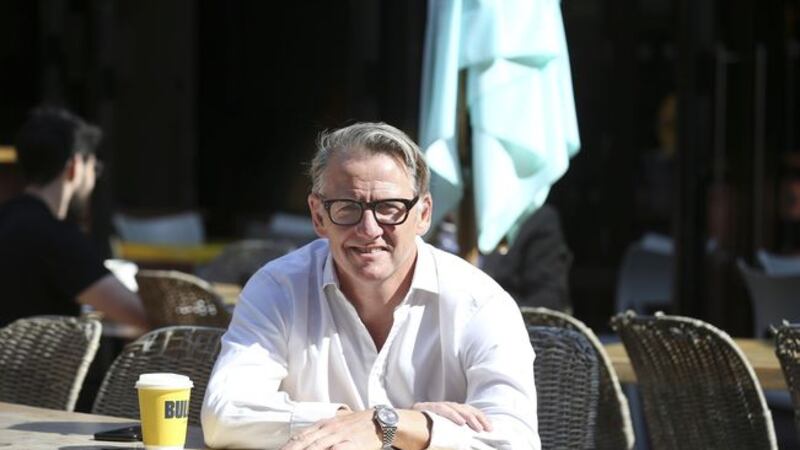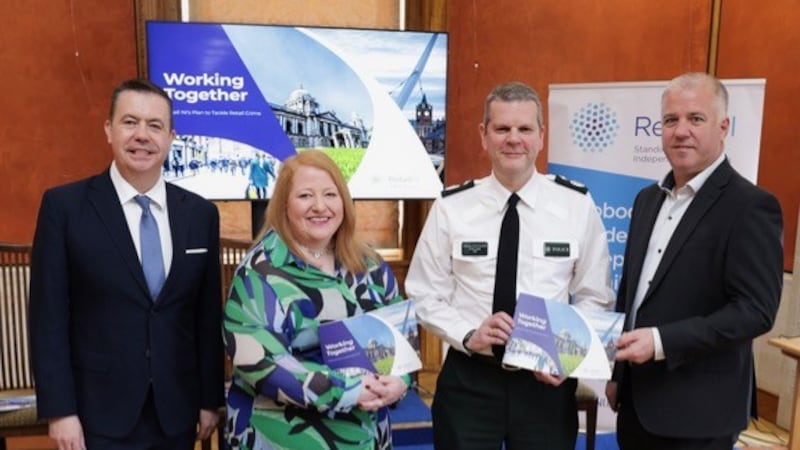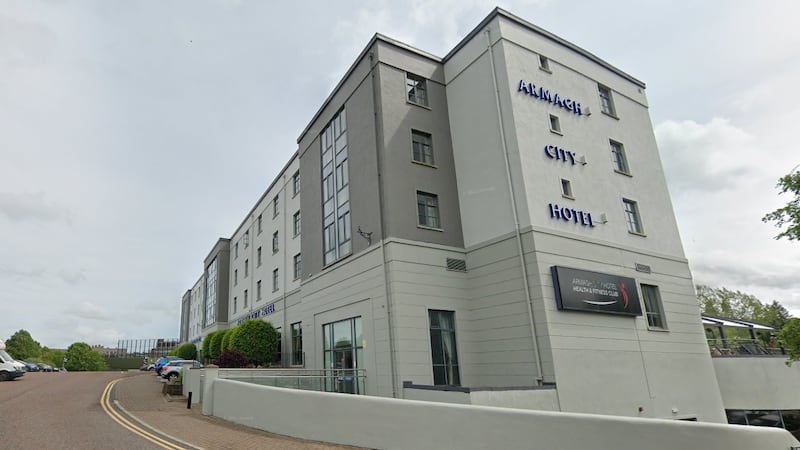“My gut feeling is that it won’t be as bad as everybody says, even though the figures and the statistics are very gloomy.”
Paul McErlean, managing director and founder of MCE Public Relations, is a strong advocate for Belfast city centre, where his company is based.
The 51-year-old, who founded MCE in 2006, said that after months of lockdown, it is now time for more people to return to work in offices “when it’s appropriate”.
“The routine of being in the office and the routine of starting meetings again… and discussing work matters with colleagues is helpful and productive,” he said.
“I think it’s also really important from a supporting the economy perspective that we’re back in the city centre buying coffees and having lunch and just generally re-energising the city centre.”
As a former footballer for Antrim and St Paul’s, now an under-16s coach with St Brigid’s GAC in south Belfast, Mr McErlean said a return to training and competitive matches had been hugely positive.
“From a children’s mental health perspective and a lifestyle perspective it’s just brilliant that sport is back,” he said.
“I think it’s really great that the schools should be starting on time. All of those things, getting life back through sport, through school, through work, through social activities, are really important.
“This isn’t just the economy, it’s mental health, it’s physical health.”
Mr McErlean battled coronavirus in a London hospital after he contracted the disease on a ski trip in Austria.
He fell ill from coronavirus on Monday, March 9 - the day before he was due to attend an early St Patrick’s Day function at Westminster.
He had to miss the function - "I realised that if I had it I could infect half the MPs” - and attended A&E at University College London on Tuesday, March 10.
“I went to casualty there and found I had a temperature of 39.5 degrees,” he said.
He was later given a chest X-ray and blood tests and was put on a drip. Medical staff also told him he could not return to his hotel due to fears around the risk of infection.
“I didn’t actually get confirmation it was Covid until Thursday morning,” he said.
“There was a backlog of tests and it took them 36 hours to establish that I actually had it. By which time my temperature was down and I was beginning to recover. I wasn’t feeling too bad.
“They kept me in until seven days after (I initially had) symptoms but I was fine from about Friday on. I was just recovering. It just felt like a bad ‘flu the whole time. I didn’t need any help with my breathing.
“I wouldn’t have been in hospital if I lived in London or had gone to a Belfast hospital. Because I didn’t have anywhere to go and couldn’t fly home I stayed in London… I flew back to Belfast on Monday 16th.”
He said that by the time he left hospital he noticed the pandemic had worsened.
“That was very tough and it really brought the whole thing home," he said.
"It was very vivid. You really got to see Covid-19 first-hand… It was like nothing I’ve ever experienced.”
He added: “Some people I know were very ill (with coronavirus) and were on ventilators so I count myself very lucky. I’m grateful that I didn’t get it in a really serious way.”
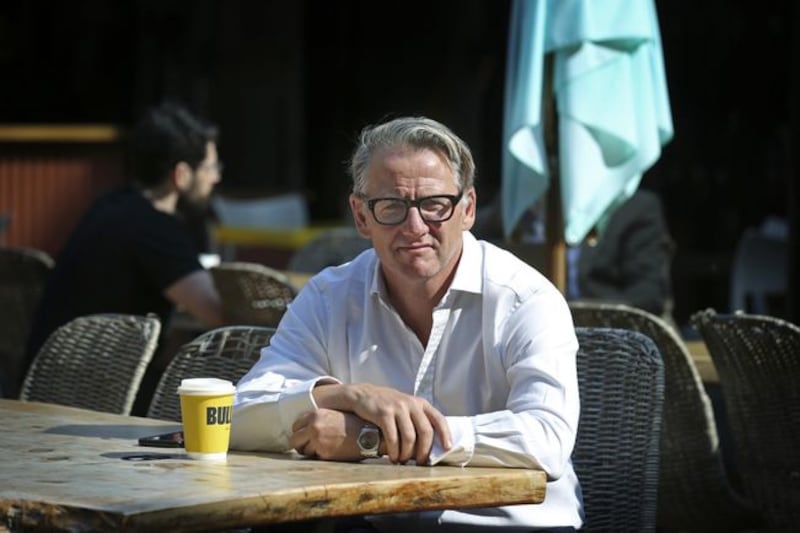
Mr McErlean later contracted a common winter respiratory virus which left him with a cough for a few days and a tightness in his chest for a fortnight.
“I would run a lot and certainly my lungs didn’t feel brilliant, they didn’t feel right for a few weeks,” he said.
“Now I’m totally fine."
Mr McErlean said while many people have “serious worries” about the economy and the survival of some businesses, he was remaining positive.
“My gut feeling is that it won’t be as bad as everybody says, even though the figures and the statistics are very gloomy,” he said.
MCE re-opened their office in Belfast city centre on July 15 but social distancing only allows 12 of the firm’s 22 staff to be in the premises at any one time.
“I think some people are really re-considering the role of the office but that’s not to say that offices are going or that we’ve invented a new way of working," he said.
"I think people’s attitudes might have changed a bit but I think it’s too early to say whether work patterns have changed permanently. My own feeling is I doubt that.
“We have colleagues who have children and with the schools being off… it makes total sense for them to work from home… None of our staff are obliged to come in and certainly we’re not expecting our staff who have children to have to do anything which stops them from looking after their kids.”
Mr McErlean said it was a “bit early to say” whether the pandemic will spark a long-term move towards working from home.
And he said home working poses its own challenges.
“I think it’s tougher on younger members of staff who, in an office environment, see and hear what’s going on and learn from their more senior colleagues and I think not being in that environment curtails that learning process and that experience process,” he said.
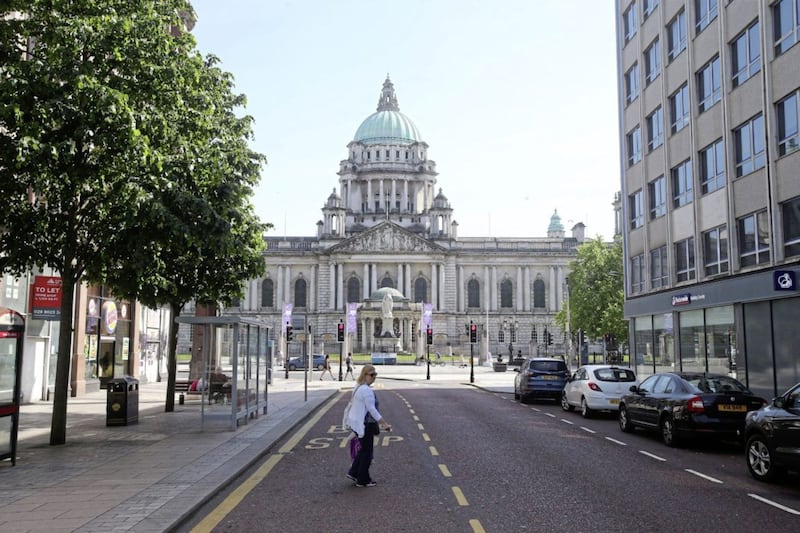
Mr McErlean said a combination of a return to offices and different leisure activities should attract more people back into our city centres.
“I think we have to be innovative and creative about activities, some of which may be outdoor to protect social distancing, but we have to be creative for our reasons to come - that might be outdoor events, it might be food and drink, it might be retail and hopefully it will be some work as well,” he said.
“Even on a staggered basis, I think there are some opportunities to bring some people back to work so that you’re getting some people in the offices and some people back at home.
He added: “We need to circulate money into the economy for it to be pushed forward. That requires people spending money.”
As chairman of Destination Cathedral Quarter business improvement district and former chairman of the Cathedral Quarter Trust, he raised concerns about a rise in crime.
“One of the big challenges we have in the city centre at the moment is there has been a rise in crime and a rise in anti-social behaviour because there are not just enough people around,” he said.
“(There are) higher incidences of anti-social behaviour, higher incidences of drug use and drug trafficking and higher levels of fear because there’s just not many people.”
